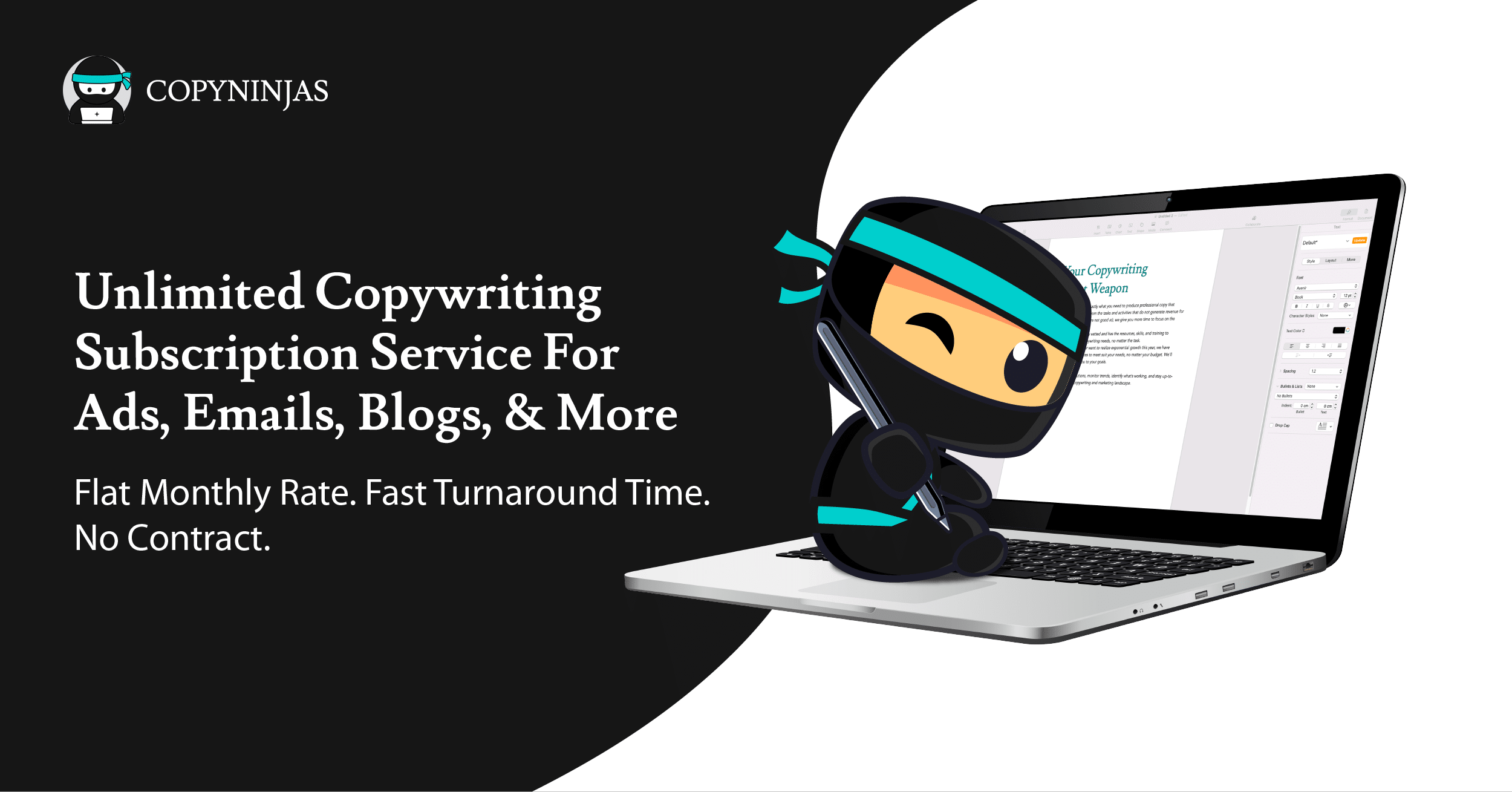Remember the time you freely used terms interchangeably, thinking they denote the same meaning?
Like crocodile and alligator. Apparently, these terms are different from one another. Crocodiles have V-shaped snouts; alligators, U-shaped. The same semi-aquatic reptile family, but different animals.
Well, confusion or misuse will likely arise. After all, the English language is an evolving one. And as the internet shapes the language even more every day, confusion of terms is becoming more common. It’s trickier even in the sense that the misuse is barely perceptible for most people.
That’s pretty much the same case with copywriting and content writing. You probably thought these terms are the same, right? Don’t worry. Even most writers thought so too.
So how do these terms differ? Let’s dive into it.
How Are Copywriting and Content Writing Different?
While both are crucial for a successful online marketing strategy, content and copywriting are actually two different skill sets.
However, most people use these two terms interchangeably quite often.
Copywriting is creating effective copy.
What’s copy? That’s the text you read in emails, billboards, and online ads that aim to convert readers into buyers. To get people to take some sort of action.
On the other hand, content writing is producing valuable content that aims to engage or educate the reader. The work is commonly in the form of blogs and e-books.
Copywriting Is Persuasion
Do you remember the time when we’re younger and we’re trying to convince our parents that we want to go out and play with the other kids? And in return, we promise to do the household chores?
If you put that into writing, that’s basically copywriting.
Copywriting is essentially persuasion.
Using the power of written words, the copywriters’ goal is to convince people to perform a desired action. Whether it’s joining an email list or purchasing a product.
The copy doesn’t even have to be long. It could even be in just one word like Buy or Join. The shorter form is often the case, and preferred in some instances. And we’ll explain later why.
As long as it delivers the punch, fewer words are better. They bring more impact.
What Makes for an Effective Copy?
Did you know most people now have shorter attention spans?
According to research, it used to be 12 seconds; that was in 2000. Today, it shrunk significantly, dropping our attention span to just eight seconds.
Imagine that; even goldfish have better attention spans than us. That’s probably no surprise if you’ve ever bounced between Insta, YouTube, TikTok, Netflix, then back to Insta.
Now, consider this when creating an ad for a product or service.
Because people are able to focus on an object for about eight seconds, you need to create copy that’s short.
Good copywriters can deliver the right message. But the great ones can produce a strong message that speaks directly to its readers in just a few words.
Hence, the shorter the copy, the better.
Content Writing Is Education
Movie spoilers, we hate them. But not all of them, we think. Perhaps that’s the case when the movie pooper reveals surprise endings and twists.
Because, sometimes, even the avid filmgoers look for movie guides to know what to expect from the featured presentation.
That’s where content writing can come into play.
Content writing is basically educating the reader. The goal of a content writer is to create content to help his audience understand a topic better or arrive at a well-informed decision.
So if you saw a movie and walked out of the theater with lots of questions, you can search online. There’s probably a blog about it, explaining its twist, ending, or hidden meaning.
Content Writing Is Creating Blogs
That’s usually the case with content writing. Its most common form is blogs, with a length ranging from 300-400 to 2,500 words. Sometimes, it’s even longer, as in the case of e-books.
Quite the contrast from copy where a single word will, under certain instances, suffice.
Are you starting to see the difference?
Unlike a copy, which often has a shorter life (because it’s typically used for a specific campaign), blogs and e-books often see themselves finding a permanent home in the blog section of a website.
In addition, one of the best ways to rank for search engine purposes is to create blogs. And in most cases, you need to use the right target keywords to help optimize the website. So, writing for SEO generally involves content writing.
It’s All About the Writer’s Intention: Intent Differentiates Copywriting From Content Writing
When you think about it, the difference between copywriting and content writing boils down to the writer’s intention.
Does he want you to take action? Or does she want you to understand a topic better?
Having identified the intent, this brings us to an important question.
Which Is Better for Your Business?
The key is to identify your specific business goals.
Want to generate more leads and increase sales? Then copywriting is your go-to.
On the other hand, content writing is the ideal mode if you want to foster a relationship with your target audience. More so, if you want to establish yourself as someone who’s conversant with the subject; the expert in your field.
But for a successful online marketing strategy, a combination of both copywriting and content writing is highly recommended.
Crucial Skills For Copywriting and Content Writing
The skills needed for copywriting and content writing are different.
As lead generation and sales involve convincing people, copywriting requires good persuasion skills.
Copywriters need to have a good grasp of psychology, particularly a deep understanding in human behavior, to be able to win over the reader. Because it takes more than just a string of words to create good copy.
So you’ll need a powerful message, short and succinct, that can evoke the readers’ emotions and impel them to take action.
You can usually see these messages in the form of:
- Marketing emails
- Website copy
- Landing page copy
- Video scripts
- SEO copy
- Ad copy
- Billboards
- Social media marketing posts
As for content writing, it’s all about educating the readers.
Content writers need to convey value-driven information. And this is possible through extensive research.
Ideally, the content writing piece shouldn’t feel to sales-y. Rather, it’s a way for you to stand out as a thought leader on the subject.
Content writing pieces are usually in the form of:
- Articles
- Blogs
- Newsletters
- Press releases
- E-books, even books
Combining Copywriting and Content Writing to Get the Best Results
Online marketing is a wonderful driving force to generate leads, increase sales, and establish awareness for your business.
And what better way to do that than through a combination of copywriting and content writing. Wondering if you should just focus on one?
Nah! It’s best to do both. Here’s why.
If you’re looking to be the next internet sensation or really drive your sales forward, you’ve got to build a relationship with your audience. Thus, convey something relatable to them.
And doing purely copywriting isn’t going to do it.
You can’t just use copywriting all the time. You’ll sound may sales-y, and your copy can sound, to some extent, exasperating.
If all you’re concerned about is selling things, your readers will get tired and lose interest. That’s a quick way to lose your audience.
On the other hand, if you want to share your awesome blogs, then you’ll need to post something clever on social media to attract attention. Something witty to get your audience interested in reading your articles.
Now, that’s integrating copywriting into content writing.
Are you integrating both to meet your business goals?
If you’re ready to level-up your content and copywriting for your business, let the professional, skilled team at Copy Ninjas get you to your goals faster. Find out how you can save time, money, and up your content and copywriting game by signing up for a demo today. Your first finished project could be waiting for you by tomorrow!









